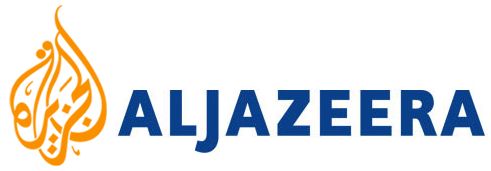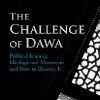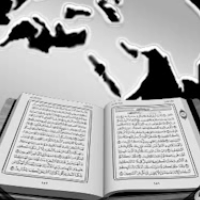![]()
Winter 2012 | Middle East Quarterly, Volume XIX: Number 1, pp. 47-56 | by Oren Kessler
One of the principal beneficiaries of the Arab uprisings has been Al Jazeera television. Viewers are praising the English and Arabic channels’ comprehensive coverage of the revolts while the Obama administration continues to court the network as part of its signature foreign policy goal of improving ties with the Arab and Muslim worlds.
On August 1, 2011, Al Jazeera English (AJE) began broadcasting to two million cable subscribers in New York — the third major U.S. city to carry the station after Houston and Washington, D.C.[1] AJE’s gutsy, driven reporting — one commentator aptly commended its “hustle”[2] — has won it friends in high places: Secretary of State Hillary Clinton lauded the channel as “real news,”[3] and Sen. John McCain (Republican, Ariz.) said he was “very proud” of its handling of the so-called Arab Spring.[4]
Lost in the exuberance is the fact that a vast gulf still separates the channel’s English iteration from the original Arabic, which fifteen years after its birth continues to inflame Arab resentments in its promotion of anti-Americanism, Sunni sectarianism and, in recent years, Islamism.
As AJE debuts in New York, many viewers who do not speak Arabic will presume the station to be a direct or approximate translation of its parent network in Qatar.[5] But to appreciate what Al Jazeera English is, it is critical to remember just what it is not — even a remote likeness of its Arabic-speaking progenitor.
Fanning the Flames
In the aftermath of the 9/11 terrorist attacks, Fouad Ajami traveled to Qatar to write a profile on Al Jazeera Arabic (AJA) for The New York Times Magazine. In the cover story “What the Muslim World Is Watching,” he wrote, “Jazeera’s reporters see themselves as ‘anti-imperialists.’ Convinced that the rulers of the Arab world have given in to American might, these are broadcasters who play to an Arab gallery whose political bitterness they share — and feed.”[6]
Virtually all of the channel’s journalists, he found, were either leftist, pan-Arab nationalists, or Islamists. “Although Al Jazeera has sometimes been hailed in the West for being an autonomous, Arabic news outlet, it would be a mistake to call it a fair or responsible one,” he wrote. “Day in and day out, Al Jazeera deliberately fans the flames of Muslim outrage.”[7]
It was in the days after the 2001 attacks that most Americans first encountered Al Jazeera Arabic (the English offshoot was still five years away) when the channel broadcast its first Osama bin Laden tape, an admission of responsibility for the slaughter. The clip was the first of about ten audio and video statements AJA would broadcast of the al-Qaeda leader over the same number of years.[8]
In the wake of those attacks, Ajami discovered, bin Laden was Al Jazeera’s unchallenged star: “The channel’s graphics assign him a lead role: There is bin Laden seated on a mat, his submachine gun on his lap; there is bin Laden on horseback in Afghanistan, the brave knight of the Arab world. A huge, glamorous poster of bin Laden’s silhouette hangs in the background of the main studio set.”[9]
In Afghanistan, Al Jazeera’s narrative was roughly analogous to the Taliban’s: ill-equipped, heroic Muslims overcoming the foreign invader through sheer courage and faith. Taliban-embedded reporters ended their broadcasts with the sign-off “Islamic Republic of Afghanistan” — the Islamist government’s official name for the country — while the U.S. war on terror was denied the same treatment, identified instead as a campaign against “what it calls terror.”[10]

Al Jazeera’s coverage of U.S. involvement in Iraq betrays its Islamist sympathies, referring to suicide bombings against U.S. troops as “paradise operations” and replacing words such as “terror” and “insurgency” with “resistance” or “struggle.” It has also served as the mouthpiece for terrorists, here displaying kidnapped American contract worker Jeffrey Ake for propaganda purposes. Ake has never been found.
Coverage in Iraq has been similar. Words like “terror” and “insurgency” are rarely mentioned with a straight face, usually replaced with “resistance” or “struggle.” Suicide bombings against U.S. troops are “commando attacks” or sometimes even “paradise operations” while “War in Iraq” is replaced by “War on Iraq.”[11] Similarly, Israel’s 2008-09 Gaza offensive was branded “War on Gaza” in both Arabic and English.[12]
In his 2004 state of the union address, President George W. Bush singled out Al Jazeera as a source of “hateful propaganda” in the Arab world, and then-defense secretary Donald Rumsfeld blasted its war coverage as “propaganda,”[13] “inexcusably biased,”[14] and “vicious.”[15]
“Real News”
Al Jazeera’s sympathetic coverage, in both Arabic and English, of the past year’s Arab upheavals signaled to many that Americans may finally let the network in from the cold.[16] It was a view the Obama administration — eager to drain the bad blood of the Bush era — readily encouraged.
“Al Jazeera has been the leader in that they are literally changing people’s minds and attitudes. And like it or hate it, it is really effective,” Secretary of State Clinton told the Senate Foreign Relations Committee in March. AJE, she said, is “must watch, real journalism.”[17] Dana Shell Smith — the first deputy assistant secretary of state for international media engagement and an Arabic speaker — described Al Jazeera Arabic as a “really important media entity” with which the administration has a “really great relationship.”[18]
The thaw has been bipartisan with Republicans as wary as Democrats of slighting a network riding a worldwide wave of popularity — AJE now reaches a quarter of a billion people in 130 countries[19] — and perceived as siding with freedom and democracy against dictatorship.[20]
“It’s like Rip Van Winkle — you wake up and, my God, it’s a different world,” said Tony Burman, at the time AJE’s chief strategic adviser for the Americas. “Hosni Mubarak did in eighteen days what I thought it would take two years to do.” Walking through the State Department, Burman said, he sees his station playing on virtually every computer and television screen.[21]
Judea Pearl is a celebrated University of California computer scientist and cofounder of the Daniel Pearl Dialogue for Muslim-Jewish Understanding, created to honor his son, the Wall Street Journal reporter kidnapped and beheaded in 2002 by al-Qaeda terrorists in Pakistan.[22] Since 2007, Pearl has been a lonely voice on the left warning against Al Jazeera’s legitimization. “Their unconditional support of Hamas’s terror in Gaza, the Hezbollah takeover in Lebanon, and the Syrian and Iranian regimes betrays any illusion that democracy and human rights are on Al Jazeera’s agenda” — he wrote this year — “weakening the West is their first priority.”[23]
March Lynch, a commentator on Arabic media, accurately noted, “There has been a switch on the perception of Al Jazeera Arabic, simply because right now, the U.S. and Al Jazeera Arabic are more aligned in backing the democracy movements … It’s not like Al Jazeera or the U.S. have changed that much. The issues have changed.”[24]
Reading between the Lines
In 2006, months before going on air, Al Jazeera English hired Dave Marash, a former anchor for NBC Nightline. But just as Marash’s arrival lent the yet-unborn channel an aura of credibility, his departure two years later cast doubt on whether AJE would be willing and able to distance itself from its predecessor’s worst practices.
“[T]he channel that’s on now — while excellent, and I plan to be a lifetime viewer — is not the channel that I signed up to do,”[25] Marash said. He recalled that after he was moved from anchor to reporter, the channel’s roster included not a single presenter with an American accent — a choice Marash viewed as deliberate: “I took it particularly amiss … that their standard for journalism on Al Jazeera in the United States didn’t seem consistently to be as good as their standards elsewhere.”[26]
Marash cited a series called Poverty in America to illustrate what he described as AJE’s underlying anti-Americanism. “The specifics of the plan were so stereotypical and shallow that the planning desk in Washington said that we think this is a very bad idea and recommend against it and won’t do it. And so the planning desk in Doha literally sneaked a production team into the United States,” he said. “This series reported nothing beyond the stereotype and the mere fact that there were homeless people living on the street in Baltimore … It was enough for them to show poor people living in wretched conditions in a prosperous American city and decry it.”[27]
Likewise, Marash said, an item on indigenous Mexicans in Chiapas State blamed their impoverishment solely on the North American Free Trade Agreement, papering over the knottier issues of race, class, and relations between state and federal governments in Mexico. “So again, it was really shoddy reporting,” he said.[28]
“When you speak to presenters on CNN and BBC, you’re usually speaking to very serious people who know the issues,” an Israeli spokesperson with extensive experience with the channel told me. “When they ask you a tough question, you can presume it’s a tough question that’s been thought about. On Al Jazeera English, they can ask some tough questions, but it often has the level of a campus debate.”[29]
Right Hook to the Jaw
Its failings notwithstanding, Al Jazeera English is leagues ahead of its Arabic analog in producing news that meets the basic criteria of the journalistic craft. AJE representatives’ failure to convincingly explain that discrepancy — their clumsy attempts to simultaneously tout the two channels’ independence and their “shared vision” — is cause for concern.
“At the end of the day, we don’t share the same editorial policies,” Ayman Mohyeldin, then AJE’s Cairo correspondent, said in February. “What we do share is the editorial code of ethics and the same editorial vision as the network.”[30]
“Anyone who works at Al Jazeera English is convinced that if you watch Al Jazeera English, and if you watch and understand Al Jazeera Arabic, you will be convinced that the journalism is professional, that the quality of work is very high,” said Mohyeldin, who left the network this summer for NBC News. “The only problem is that very few people in the United States understand Al Jazeera Arabic. They buy into a lot of the innuendos. Once they have that sense of fear, they use that brush to paint Al Jazeera Arabic and Al Jazeera English with it.”[31]
Abderrahim Foukara, the Arabic channel’s Washington bureau chief, told the Council on Foreign Relations,
The way the truth may be defined in the Arab world, and associate it with Al Jazeera, is not the way Americans, for example, would define the truth and associate it with, say, CNN or MSNBC or Fox. … Al Jazeera Arabic, because it is so connected to a turbulent part of the world, the tone is different … it’s much feistier … The broad majority of Arabs identify with the channel, not only in terms of political coverage, but the nuances, the reading between the lines.[32]
In truth, the bulk of AJA’s content has all the nuance of a right hook to the jaw. The non-Arabic speaker is immediately struck by the station’s frenetic tone and imagery, and a viewer with even a moderate command of the language is likely to be all the more taken aback.
The Freest of Speech
At its birth, Al Jazeera Arabic had an immediate and profound effect on Middle Eastern media, ushering in a new form of antiestablishment broadcasting in a region long dominated by state propaganda. But while AJA was unusual in reporting stories some regimes did not like, it also reported them in a way that reinforced rather than undermined the region’s existing system of ideas.[33]
The language of resistance and martyrdom remains Al Jazeera’s mother tongue. In 2001, while the “second intifada” raged, Fouad Ajami wrote, “The channel’s policy was firm: Palestinians who fell to Israeli gunfire were martyrs; Israelis killed by Palestinians were Israelis killed by Palestinians.”[34] A decade on, little seems to have changed — civilians are generally classified as “martyrs” if killed in Iraq, Gaza, Afghanistan, or any other Arab or Muslim locale. Elsewhere, people killed are people killed.[35]
Where Al Jazeera differs from state-run media is in its allowance for free speech. AJA markets itself as a forum for the very freest of expression, “inviting anybody to come on the air and say anything, often allowing perspectives that lacked factual basis to go unchallenged,” according to a recent profile in the American Journalism Review.[36]
Yet even at Al Jazeera, free speech has its red lines. In 1996, it was the first Arabic station to let Israelis appear as on-air guests, often speaking in Hebrew. Many viewers were stunned, having never before heard an Israeli speak — much less in his or her native language.[37] Still, the scope given to Israeli guests to express themselves was, and is, extraordinarily limited. An Israeli spokesman who appears regularly on the channel said that a typical appearance more closely resembles an interrogation than an interview. “We’re never invited to long interview shows but always short interviews of three and a half minutes,” he said. “They’re unwilling to engage in a real dialogue, and instead use Israelis as fig leaves.”[38]
American contributors often receive similar treatment. A 2007 episode of the flagship talk show The Opposite Direction featured as guests Adam Ereli, State Department spokesman, and Mishan al-Jibouri, who was identified as “head of the Reconciliation and Liberation Bloc” in the Iraqi parliament. When host Faisal al-Qassem asked whether the United States had invaded Iraq to free its people or its oil, Jibouri responded unchallenged, “It’s not just Iraqi oil; it’s all Arab oil. They want to kill off indigenous people and control their wealth.” When Ereli begged to differ, the host cut him off: “The U.S. is the biggest supporter of dictatorships. Aren’t you ashamed to repeat these lies? Are you against dictatorships? The U.S. created them with the CIA and all these other people, lying to the world.”[39]
Qassem neglected to mention that Jibouri was a cofounder of al-Zawraa, a now-defunct satellite station that specialized in gory segments of insurgent attacks on U.S.-led forces, accompanied by melodramatic musical scores and running commentary by camouflage-clad anchors vowing resistance until death.[40]
From Sectarianism to Islamism
Al Jazeera’s detractors have long dismissed the network as a vehicle for Doha’s foreign policy, one driven by Sunni sectarianism and an overriding antagonism toward Iran.[41] Voices critical of Qatar’s government — the “worst in the region” in tracking terrorist financing, according to U.S. diplomatic cables published by WikiLeaks[42] — are nonexistent in English or Arabic.[43] In 2011, both channels provided only scant coverage of the uprising in neighboring Bahrain — where a downtrodden Shiite majority demanded greater rights in the Sunni-led kingdom[44] — and were slow to cede airtime to the rebellion in Syria — a leader of the “resistance bloc” against the United States and Israel even if it is allied with the Shiite hegemon in Tehran.[45]
Over the past decade, however, Al Jazeera’s sectarian impulse has been moving ever closer to garden-variety Sunni Islamism, a shift dramatic enough to catch the attention even of the liberal bulwark The Nation. In 2007, the weekly’s Kristen Gillespie wrote that 9/11 “brought a new anti-imperialist and, many argue, a pro-Sunni Islamist bent to the network … The field reports are overwhelmingly negative with violent footage played over and over, highlighting Arab defeat and humiliation. And there’s a clear underlying message: that the way out of this spiral is political Islam.”
“[I]t doesn’t take much viewing of the channel to discern a dual message,” Gillespie wrote. “Sunni religious figures are almost always treated deferentially as voices of authority on almost any issue, and Arab governments as useless stooges of the United States and Israel.”
In the words of Alberto Fernandez, then-director for press and public diplomacy in the State Department’s Bureau of Near Eastern Affairs, “We see the unconditional support of Islamic movements, no matter where they are: Lebanon, Palestine, Iraq, Afghanistan. … How things are covered, the prominence of things, what words are used — sometimes you do see that very clear Islamist subtext.”[46]
In 2002, Al Jazeera Arabic promoted Wadah Khanfar — a reporter from the West Bank town of Jenin widely believed to have close Muslim Brotherhood ties[47] — from Iraq bureau chief to managing director. Three years later Khanfar was promoted to director general of the overall Al Jazeera network, overseeing both language channels. On both occasions, he replaced relatively secular-minded journalists.
Gillespie spoke with nine active and former employees who described Khanfar as an Islamist. “Everyone is complaining about the new trend now—that the liberals, the secular types, the Arab nationalists are getting downsized, and the Islamic position is dominating the newsroom,” said a former Baghdad correspondent. “From the first day of the Wadah Khanfar era, there was a dramatic change, especially because of him selecting assistants who are hard-line Islamists,” added AJA’s former Washington bureau chief Hafez al-Mirazi, who resigned a year after Khanfar’s arrival to protest the station’s “Islamist drift.”[48]
For his part, Khanfar has dismissed the idea that his perspective was in any way at odds with those of the channel’s viewers. “Islam is more of a factor now in the influential political and social spheres of the Arab world, and the network’s coverage reflects that,” he said. “Maybe you have more Islamic voices [on AJA] because of the political reality on the ground.”[49] Judea Pearl put the channel’s agenda more plainly: “I have no doubt that, today, Al Jazeera is the most powerful voice of the Muslim Brotherhood.”[50]
The Obama State Department overturned the Bush administration’s refusal to grant Khanfar a visa, and in 2009, he met with State, Pentagon, and White House officials before embarking on a speaking tour that included the New America Foundation, Council on Foreign Relations, and Middle East Institute.[51]
Khanfar resigned as director general in September of this year,[52] following the release of WikiLeaks cables showing he had met with U.S. officials and agreed to tone down Iraq war coverage Washington deemed inflammatory.[53] The choice of Khanfar’s replacement — an oil executive who belongs to the ruling al-Thani dynasty — is yet another sign that despite U.S. pressure to privatize,[54] Qatar intends to keep Al Jazeera a wholly-owned family business.
The Palestinian Street
Given its Islamist sympathies, it is unsurprising that the network sides heavily with Hamas in its rivalry with the Fatah-led Palestinian Authority (PA). “In Arabic, it’s unmistakable — Al Jazeera is not just pro-Palestinian, but pro-Hamas,” the Israeli spokesman said.[55] The New York Times — which has pushed for AJE’s inclusion on U.S. cable[56] — has conceded that there is “little doubt” the Arabic channel portrays Hamas more favorably than its rivals.[57]
Polls show a remarkable 53 percent of Palestinians use Al Jazeera as their primary news source with Saudi-owned Al Arabiya a distant second at 13 percent. The way AJA covers any prospective Israeli-Palestinian agreement will fundamentally shape how such a deal is viewed — and whether it is accepted — by the Palestinian public.[58]
When in 2009 Mahmoud Abbas agreed to defer a U.N. Human Rights Council discussion of the notorious Goldstone report on that year’s Gaza offensive, Al Jazeera censured the PA president for his “capitulation” to Israeli and Western demands. The resulting public outcry nearly resulted in Abbas’s resignation.[59]
Early this year, the network published the “Palestine Papers” — a leak of 1,700 files encompassing a decade’s worth of Israeli-Palestinian negotiations — prompting commentators across the Arab world to denounce the PA leadership for supposedly agreeing to wide-ranging concessions toward Israel. “The fact is that Al Jazeera has never done the same against Hamas, and that Hamas has never complained about Al Jazeera’s coverage,” the Israeli spokesman said. “It’s always the Palestinian Authority that complains.”[60]
Anti-Semitic, Anti-Israel
On Al Jazeera Arabic, anti-Israel sentiment tends to bleed indistinguishably into anti-Semitism. Erik Nisbet, a scholar of Arabic media at Ohio State University, said the channel’s treatment of extremists would be roughly akin to a U.S. network giving airtime to the Ku Klux Klan. American channels, he said, “would report on them, but they are not going to do in-depth interviews or invite them to be on mainstream talk shows, and let them say anything they want, but Al Jazeera does.” According to Nisbet, there is “no doubt” that anti-Semitism is woven into the very fabric of AJA’s reporting.[61]
After 9/11, AJA presenters repeated, unchallenged, a report that Jews had been tipped off not to report to work at the World Trade Center that morning. Contributors running the clerical, jihadist, and guerrilla gamut blamed Jews for the attacks and urged the United States to “get rid” of its own.[62] The summer before, an episode of The Opposite Direction was dedicated to the question, “Is Zionism Worse than Nazism?” Of the 12,000 viewers who called in, 85 percent answered in the affirmative, 11 percent saw both as equally bad, and 2.7 percent ventured that Nazism was worse.[63]
Yusuf al-Qaradawi, host of Al Jazeera’s most popular program, Shari’a and Life, regularly froths about the insidious character of Shiites, Americans, and especially Jews.[64] “Oh Allah, take this oppressive, Jewish, Zionist band of people. Oh Allah, do not spare a single one of them. Oh Allah, count their numbers, and kill them, down to the very last one,” he said on air in 2009.[65] Elsewhere, Qaradawi praised Hitler’s treatment of the Jews (“even though they exaggerated the issue”) but stressed the führer’s regret at not finishing the job.[66]
The Kuntar Affair
If there was a single incident that exemplified the worst of Al Jazeera, it was the Samir Kuntar affair — an appalling low for the network in both languages.
In April 1979, a 16-year-old Kuntar left his native Lebanon with three Palestine Liberation Front comrades for a kidnap attempt in Nahariya, northern Israel. Arriving by boat, they killed a policeman before breaking into a randomly chosen home. Kuntar took 31-year-old Danny Haran and his 4-year-old daughter Einat hostage, then brought them to the seashore to take them to Lebanon. As a firefight erupted with Israeli troops and police, Kuntar shot Haran dead before his daughter’s eyes (drowning him in the sea for good measure) before ending the girl’s life by bashing her head against beach rocks, then smashing it with his rifle butt. An Israeli court also found Kuntar guilty of indirectly causing the death of Einat’s 2-year-old sister Yael, who suffocated during the kidnap attempt as her mother, hiding in a bedroom crawlspace, desperately covered her mouth.[67]
Sentenced to four life sentences, Kuntar never expressed remorse for his deeds, insisting for decades that he had urged Danny Haran to leave Einat at home, and that once at the beach, the girl died by Israeli fire (the first claim defies credulity; the second was refuted by photographs that later emerged and unanimous eyewitness testimony).[68]

If there was any doubt about Al Jazeera's sympathies and lack of neutrality, it was effectively laid to rest with the channel's coverage of the release of Samir Kuntar. Kuntar had savagely murdered two Israelis in 1979, including a 4-year old girl, and had been jailed in Israel since then. On his 2008 release in an Israel-Hezbollah deal, Al Jazeera Arabic threw him a party: "Brother Samir, we wish to celebrate your birthday with you," crowed the station's Beirut bureau chief, hailing Kuntar as a "pan-Arab hero."
When in July 2008, four days before his forty-sixth birthday, Kuntar was released in an Israel-Hezbollah deal, Al Jazeera Arabic threw him a party. “Brother Samir, we wish to celebrate your birthday with you,” said Ghassan Ben Jeddo, the station’s Beirut bureau chief, playing master of ceremonies. “You deserve even more than this,” he said, hailing Kuntar — pudgy and bemused in a mock military uniform — as a “pan-Arab hero.”[69]
While a live band tooted a martial medley, food servers rolled out a cake adorned with images of terrorist leaders including Hezbollah’s Hassan Nasrallah. Handing Kuntar a scimitar to cut a piece, Ben Jeddo gushed, “This is the sword of the Arabs, Samir.”[70]
Israel threatened to boycott the channel unless it apologized, and AJA’s director general penned a letter admitting “elements of the program violated Al Jazeera’s code of ethics” and saying he had ordered steps be taken to ensure a similar incident was not repeated. AJA’s deputy editor later clarified that the channel had not actually apologized.[71]
“The gentleman involved was fully reprimanded, and he no longer works for us,” Al Jazeera English managing director Al Anstey said this summer. “Clearly, that was taken very seriously. That is not the channel I run. I would not have run that … Action was taken immediately after the show was aired.”[72]
It is unclear which “gentleman” received the reprimand. Ben Jeddo stayed on as Beirut bureau chief until this year when he resigned to protest the network’s hard-hitting if belated coverage of the Syrian crackdown. “The channel ended a dream of objectivity and professionalism after Al Jazeera stopped being a media source and became an operations room for incitement and mobilization,” he wrote in his resignation letter with apparent seriousness.[73]
In English, Al Jazeera’s coverage of the event was only marginally better. In the lead-up to Kuntar’s release, AJE aired a segment from his home village of Abieh in which reporter Zeina Khodr described Nahariya, a city within Israel’s sovereign borders, as a “settlement.” After introducing Kuntar by his full name, she named him seven times by his first name and not once by his last. Nowhere did she mention the brutality with which Kuntar’s victims were murdered.[74]
On Kuntar’s release, Lebanon-based reporter Rula Amin effused that “in his hometown, Samir Kuntar is received as a freedom fighter, and he was received with a festive ceremony. A hero, even to those who were not even born when he went to prison.” Amin apparently found it more remarkable that Kuntar’s admirers included young people than that an entire village, country, and region should lionize a child murderer.
“A display of unity in Abieh,” she concluded, “may be the start of reconciliation between Hezbollah and Walid Jumblatt,” the Lebanese Druze leader. As Amin would have it, the crux of the story is not the inverted morals of Kuntar’s reception but the prospect of that reception serving as a catalyst for Lebanese reconciliation.[75] Only one AJE segment — by Sky News veteran David Chater — included an explicit account of Kuntar’s actions.[76]
“Al Jazeera English has hired some very good people, but they’ve also got people who I don’t think would be hired by other serious media outlets,” said one Israeli spokesperson. “Some really try to be professional in a journalistic sense and tell the story fairly. Others are ultimately driven by an agenda, which is, of course, quite hostile to Israel.”[77]
Perhaps as a result of the Kuntar episode, or as part of its push into America, AJE appears lately to be showing more caution in its coverage of Israel. In July, its Inside Story series devoted a full half-hour episode to the country’s cost-of-living protests[78] then did the same a week later with guests including government officials and a Ha’aretz columnist.[79] In August, its Playlist series rebroadcast an April segment on Middle Eastern heavy metal bands featuring acts from Iran, Dubai, Lebanon — and two from Israel.[80]
Hours of watching AJA in July and August for this article produced not a single similar human-interest story on Israel in Arabic. Instead, during the months that the Arab revolutions raged, the AJA website featured a map of the Middle East and North Africa with every country marked except Israel. The Green Line demarcating Israel and the West Bank appeared, but beside it was the single word “Palestine.”[81]
Hopes Dashed, Windows Smashed
Four years ago, Judea Pearl expressed hope that Al Jazeera might “learn to harness its popularity in the service of humanity, progress, and moderation.”[82] At that time many analysts believed the network represented democracy in its infancy, and “you don’t slap an infant on the wrist before it learns to stand on its feet.”[83]
“In 2007, I was still hoping that Al Jazeera will become a force for good,” he recalled earlier this year. “Unfortunately, the opposite has happened. Al Jazeera’s popularity and general acceptance in the West has emboldened its management to take an even harder anti-Western stance.”[84]
“Today, we have much deeper concerns with Al Jazeera — it is no longer a clash with journalistic standards but a clash with the norms of civilized society,” Pearl wrote. “Our charming infant is smashing windows now and poisoning pets in the neighborhood — a slap on the wrist is perhaps way overdue.”[85]
As Al Jazeera English expands into the United States, it will need to choose one of three options. The first is to continue its present gambit of declaring a common “vision” with its parent channel while hoping the latter’s indiscretions somehow do not reflect poorly on itself. The second is to pressure that same out-of-control kin to pull its act together, lest it once again cast doubt on the character of both. Failing that, Al Jazeera English will have but one alternative: to categorically and unequivocally cut its own cord.
Oren Kessler is Middle East affairs correspondent for The Jerusalem Post.
![]()
Notes:
[1] The New York Times, Aug. 1, 2011.
[2] Robert D. Kaplan, “Why I Love Al Jazeera,” The Atlantic, Oct. 2009.
[3] The Huffington Post, Mar. 18, 2011.
[4] Politico (Arlington, Va.), May 17, 2011.
[5] Judea Pearl, “A statement of observation concerning Al Jazeera,” USA America’s Survival News (Owings, Md.), Feb. 23, 2011.
[6] Fouad Ajami, “What the Muslim World Is Watching,” The New York Times Magazine, Nov. 18, 2001.
[7] Ibid.
[8] “Timeline: Messages from bin Laden,” Aljazeera.net, May 2, 2011.
[9] Ajami, “What the Muslim World Is Watching.”
[11] Judea Pearl, “Another perspective, or jihad TV?” The International Herald Tribune, Jan. 17, 2007.
[12] “War on Gaza,” labs.aljazeera.net/warongaza, accessed Aug. 30, 2011.
[13] “Al Jazeera’s Global Gamble,” Pew Research Center’s Project for Excellence in Journalism, Washington, D.C., Aug. 22, 2006.
[14] Associated Press, Feb. 6, 2004.
[15] The Sunday Times (London), Nov. 27, 2005.
[16] Los Angeles Times, Feb. 7, 2011.
[17] The Huffington Post, Mar. 18, 2011.
[18] Politico, Apr. 17, 2011.
[19] Aljazeera.net, Aug. 1, 2011.
[20] Politico, Apr. 17, 2011.
[22] Daniel Pearl Foundation, accessed Sept. 22, 2011.
[23] Pearl, “A statement of observation concerning Al Jazeera.”
[24] Politico, Apr. 17, 2011.
[25] The New York Times, Mar. 28, 2009.
[26] Brent Cunningham, “Dave Marash: Why I Quit,” Columbia Journalism Review, Apr. 4, 2008.
[29] Author telephone interview, Sept. 7, 2011.
[30] Nitasha Tiku, “Q&A with Ayman Mohyeldin, Al Jazeera English’s Correspondent in Cairo,” New York Magazine, Feb. 11, 2011.
[32] “Al-Jazeera: The World through Arab Eyes,” Council on Foreign Relations, Washington, D.C., Feb. 17, 2011.
[33] Barry Rubin, The Tragedy of the Middle East (Cambridge: Cambridge University Press, 2002), p. 213.
[34] Ajami, “What the Muslim World Is Watching.”
[35] See, for example, “Behind the Scenes with Al-Jazeera,” Carnegie Council for Ethics in International Affairs, New York, Apr. 15, 2002.
[36] Sherry Ricchiardi, “The Al Jazeera Effect,” American Journalism Review, Mar./Apr. 2011.
[37] Hugh Miles, Al-Jazeera: The Inside Story of the Arab News Channel That Is Challenging the West (New York: Grove Press, 2005), p. 37.
[38] Author telephone interview, Sept. 4, 2011.
[39] Kristen Gillespie, “The New Face of Al Jazeera,” The Nation, Nov. 26, 2007.
[40] The Guardian (London), Jan. 15, 2007.
[41] Ricchiardi, “The Al Jazeera Effect“; The New York Times, Jan. 30, 2005.
[42] Financial Times (London), Dec. 5, 2010.
[43] The New York Times, Jan. 30, 2005.
[44] Time, May 24, 2011.
[45] Michael Young, “The shameful Arab silence on Syria,” The Daily Star (Beirut), Apr. 7, 2011.
[46] Gillespie, “The New Face of Al Jazeera.”
[47] Marc Lynch, “Al-Jazeera challenges: Pass the salt,” Abu Aardvark, June 29, 2007. Lynch describes Khanfar as having “always been seen as pro-Islamist.”
[48] Gillespie, “The New Face of Al Jazeera“; Riadh Ferjani, “Religion and Television in the Arab World,” Middle East Journal of Culture and Communication, no. 1, 2010, pp. 82-100. For more on Khanfar’s alleged Muslim Brotherhood ties see “Analysis: Al Jazeera General Manager and His Muslim Brotherhood/Hamas Background,” The Global Muslim Brotherhood Daily Report, Jan. 15, 2009.
[49] Gillespie, “The New Face of Al Jazeera.”
[50] Pearl, “A statement of observation concerning Al Jazeera.”
[51] Steve Clemons, “Wadah Khanfar: Pushing Reset on America’s Relationship with Al Jazeera and the Arab World,” Washington Note, July 25, 2009.
[52] The New York Times, Sept. 20, 2011.
[53] “9/17 Meeting with Al Jazeera Managing Director,” WikiLeaks, posted Aug. 30, 2011; “PAO Meeting with Al Jazeera Managing Director,” WikiLeaks, posted Aug. 30, 2011.
[54] The Washington Post, Jan. 31, 2005.
[55] Author telephone interview, Sept. 4, 2011.
[56] The New York Times, Feb. 1, 2011.
[57] Ibid., Jan. 28, 2011.
[58] Noah Bonsey and Jeb Koogler, “Does the Path to Middle East Peace Stop in Doha?” Columbia Journalism Review, Feb. 16, 2010.
[61] Ricchiardi, “The Al Jazeera Effect.”
[62] “Requests to add Al Jazeera to the lists of eligible satellite services for distribution on a digital basis,” Canadian Radio-Television and Telecommunications Commission, July 15, 2004.
[63] “Zionism and Nazism: A Discussion on the TV Channel Al-Jazeera,” Middle East Media Research Institute (MEMRI), June 7, 2001, quoted in Rubin, The Tragedy of the Middle East, p. 213.
[64] Lee Smith, The Strong Horse: Power, Politics and the Clash of Arab Civilizations (New York: Anchor Books, 2010), p. 129.
[65] “Sheikh Yousef Al-Qaradhawi on Al-Jazeera Incites against Jews, Arab Regimes, and the U.S.,” MEMRI, Jan. 12, 2009.
[66] “Al-Qaradawi Praising Hitler’s Anti-Semitism,” MEMRI, on YouTube, Feb. 10, 2009.
[67] The Jerusalem Post, June 16, 2008.
[68] The New York Times, July 7, 2005.
[69] “Al Jazeera Throws Party for Child Killer (Samir Kuntar),” MEMRI, on YouTube, Aug. 22, 2008.
[71] “Al-Jazeera Deputy Editor: We Didn’t Apologize for Kuntar Festivities,” MEMRI, accessed Aug. 27, 2011.
[72] The Jewish Week (New York), Aug. 9, 2011.
[73] Ghassan ben Jeddo, Facebook page, accessed Sept. 22, 2011; “Why Did Ghassan Ben Jeddo Resign from Aljazeera?” Beirut Spring blog, Apr. 23, 2011.
[74] “Samir Kantar’s family awaits his return,” Al Jazeera English, on YouTube, July 15, 2008.
[75] “Samir Kuntar returns home,” Al Jazeera English, on YouTube, July 17, 2008.
[76] “Israel’s deal with Hezbollah,” Al Jazeera English, on YouTube, June 29, 2008.
[77] Author telephone interview, Sept. 7, 2011.
[78] “Has the Arab Spring arrived in Israel?” Al Jazeera English, Aug. 1, 2011.
[79] “In Israel, ‘It’s the economy, stupid,'” Al Jazeera English, Aug. 8, 2011.
[80] Rebroadcast of “Rocking the System,” Al Jazeera English, Apr. 20, 2009 segment.
[81] Aljazeera.net, accessed Aug. and Sept. 2011.
[82] Pearl, “Another perspective, or jihad TV?“.
[83] Judea Pearl, “Al-Jazeera and the Glorification of Barbarity,” The Jewish Journal, Aug. 20, 2008.
[84] Pearl, “A statement of observation concerning Al Jazeera.”
[85] Pearl, “Al-Jazeera and the Glorification of Barbarity.”



 RSS
RSS











The Two Faces of Al Jazeera http://t.co/XDshbrvV
The Two Faces of Al Jazeera http://t.co/XDshbrvV
[…] remember that Secretary of State Hillary Clinton said that al-Jazira is a source we should look to for real news. Here is a pretty typical example of a recent al-Jazira […]
[…] Jazeera’s connection with terrorist insurgency in Iraq and terrorist advocacy is […]